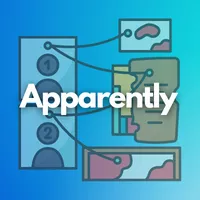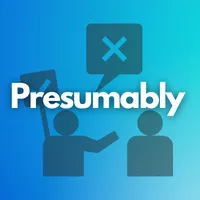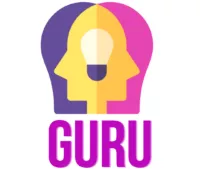Key Difference: Many people don’t know the exact meanings of the words apparently and presumably. But they use those words incorrectly. If you learn the purpose or usage of the words, you can use them confidently. The term “apparently” refers to something that is open to viewing or proving something evidently. On the other hand, the word “presumably” refers to assuming something is true based on what we know or heard. In this useful post, we will show you the contradictions of these terms with proper explanations.
Apparently: Apparently, she doesn’t like it.
Presumably: I couldn’t concentrate, presumably because I was so tired.
 |  |
Apparently:

Something is open to view.
We can use the word “apparently” when we know the truth about something. In other words, we can use it when we clearly see something. We can use this term at the start or middle of the sentence. Here we come up with another example for your reference. Apparently, she was wrong. From this statement, we might understand that someone is wrong. Let’s see another example for your quick understanding. Apparently, it’s going to rain today. From this statement, we might understand that It will rain today.
How Do We Spell the Word Apparently?
The phonetics pronunciation of the word Apparently is əˈparəntli. And this word sounds like the following audio.
Enunciation:
Syllabification refers to the process of division of words into smaller parts. It is commonly known as syllables. With its help, you can easily read and spell the word accurately. Here, you will see how to split the word “Apparently” by syllables.
- The word “Apparently” has four syllables.
- It can be divided into “Ap-Par-ent-ly.”
Using “Apparently” in sentences:
- Apparently, that’s not correct.
- He was apparently much surprised at the news.
- Apparently, you have done a great job.
- She apparently lacked the desire to learn.
- Apparently, it’s going to rain today.
Presumably:

To assume something.
The term “presumably” refers to assuming something is true based on what we know or heard about it. Let’s see an example to make it clear for you. It presumably gets difficult if you are talking to different people at the same time. From this statement, we might understand that talking with different people simultaneously will always be difficult. Here we come up with another example for your reference. Presumably, he just forgot to send the Email. From this statement, we might understand that someone forgotten to send an email.
How Do We Spell the Word Presumably?
The phonetics pronunciation of the word Presumably is prɪˈzjuːməbli. And this word sounds like the following audio.
Enunciation:
Syllabification refers to the process of division of words into smaller parts. It is commonly known as syllables. With its help, you can easily read and spell the word accurately. Here, you will see how to split the word “Presumably” by syllables.
- The word “Apparently” has four syllables.
- It can be divided into “pre-sum-a-bly.”
Using “Presumably” in sentences:
- Presumably, Tom will join his friends at the party.
- The report is presumably correct.
- Presumably, he just forgot to send the email.
- They can presumably afford to buy a new car.
- Presumably, he speaks Spanish.
Compare: Apparently Vs Presumably
This table will show the contradiction between the words’ Apparently and Presumably.
| Apparently | Presumably | |
|---|---|---|
| Definition | Clear evidence about something | Assuming that something is true based on what we know or heard. |
| Synonyms | Seemingly, evidently, by all accounts, reputedly | I take it, I dare say, assume |
| Antonyms | improbably, unlikely, dubiously, uncertain | uncertain, doubtfully |
| Etymology | It comes from the Latin apparens, meaning “appearing.” Things that we describe as apparently true appear to be true, but we’re not sure if they’re definitely true—that’s why we used the word apparently. | 1640s, “with presumption, without examination,” from presumable + -ly. As a qualifier, “probably, as one would reasonably suppose,” from 1830. |
| Examples | I wasn’t there, but apparently, it was a great function. Apparently, he is a good swimmer, but I’ve never seen him swim. I didn’t see the accident, but apparently, it was her fault. Apparently, Tom doesn’t know about the meeting because he didn’t come. | Presumably, he meant the bookshop. She is aware of the difficulties, presumably. He had gone to the headmaster’s room, presumably to check out. You’ll be taking the car, presumably? |
Resources and References:
Resources: Cambridge Dictionary (Apparently, Presumably), Merriam-Webster (Apparently, Presumably), Collins Dictionary (Apparently, Presumably), Dictionary.com (Apparently, Presumably)
Reference: Dictionary.Cambridge.org[1], Merriam-Webster.com[2], CollinsDictionary.com[3], Dictionary.com[4].
